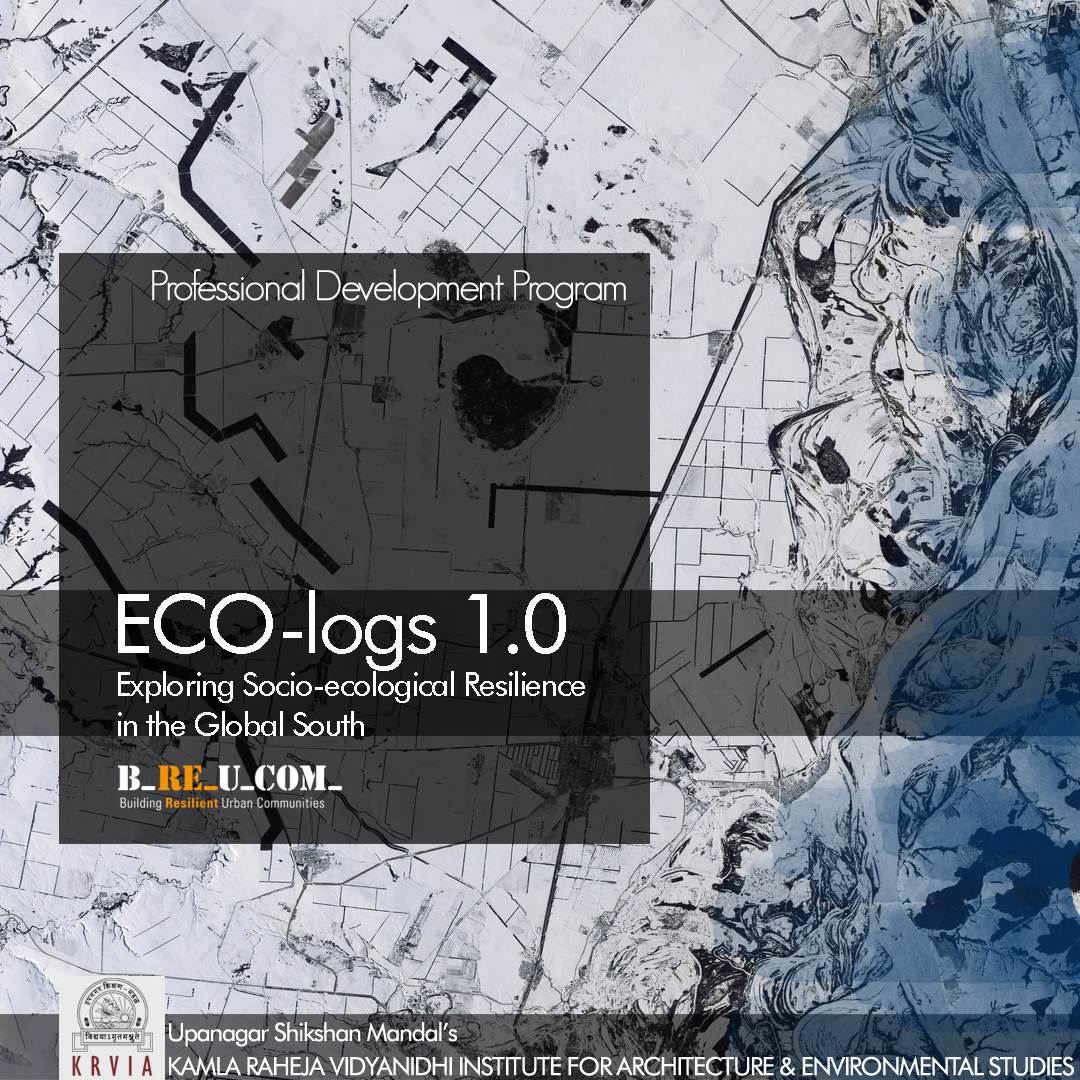Eco-LOGS 1.0 - Exploring Socio-ecological Resilience in the Global South
Course Name: Eco-LOGS 1.0 - Exploring Socio-ecological Resilience in the Global South
OCW type: PDP
Higher Education Institution: Kamla Raheja Vidyanidhi Institute for Architecture and Environmental Studies (KRVIA), Mumbai

Description of course
Aim:
To sensitize the participants to concepts of socio-ecological resilience in the light of increased flooding and other climate catastrophes in the cities of the global south and introduce them to the possibilities of employing open source geospatial technologies for documenting and analyzing the learnings from the site.
Course Objectives:
To sensitize participants regarding the concept of socio-ecological resilience
To equip participants a basic understanding of mapping vulnerabilities in the cities and peri-urban areas of the global south
To provide an international perspective to mapping vulnerabilities using open-source technologies
To introduce participants to using open source geospatial mapping technologies.
Learning Outcomes: The participants will be able to:
Discern the socio-ecological dependencies while reading the urban landscape
Articulate the concepts of socio-ecological resilience
Appreciate the role of open-source technologies in decision making
Assess the repercussions of stakeholders in ensuring community resilience.
Course Structure
Course Duration: 10 hours spread over 2 days
Course Frequency: Once a Year
Course Format:
The programme is designed as a series of online lectures by the instructors, followed by a discussion with the participants.
Participants are encouraged to interact with the instructors during the interactive session.
Course Content
Prerequisites for participation: The participants with a Bachelor's degree in Architecture/Planning. Participants enrolled in Postgraduate programs in Architecture, Landscape Architecture, Urban Design, Urban Planning, Conservation, or related fields will be given priority. Other applicants with a keen interest in Urban Studies can also apply.
Course Syllabus:
The Couse is designed as a series of lecture presentations followed by interactions with the participants:
a. Introductory Lecture: Contemporary Thoughts on Socio-ecological Resilience
b. KRVIA Academic Explorations with Urban Flooding- Post graduate Participant presentations of successful use of GIS based ecological Studies as part of the studio.
1. Urban Flooding, Mumbai Suburban, Maharashtra
2. Wetland Ecosystem: Aluva, Kerala
c. International Perspectives: Mapping Vulnerabilities – Presentations by Faculty from ITC| Faculty of Geo-information Science and earth Observation, University of Twente, Netherlands
d. Open Source Geographical Information Systems: Perspectives and Applications.
e. Application of GIS for Urban Waters and related Heritage Conservation..
Course Assignments: The participants were encouraged to conduct research on the topics presented during the presentations and discuss them in the concluding session.
Expected time spent on course:
Time spent in hours: 12.5 hours
Time spent in ECTS (European Credit Transfer and Accumulation System): 0.5 ECTS
Course Grading
Assessment Criteria and Distribution of Marks:
Class Discussions on the last session based on the research the participants were asked to conduct and attendance of all sessions.
Course Evaluation
Evaluation Procedure & Criteria:
Deans and Academic advisors evaluate and comment upon the course structure before the course in conducted.
After the course, participant evaluation feedback analysis obtained through ERP is made available to individual faculty.
Faculty Evaluation:
Interaction during the presentation by the mentors.
Student Evaluation:
Standard form has been made available at the end of the session for the participants to fill it and to suggest their learnings as well as regarding the points of improvements for the course.